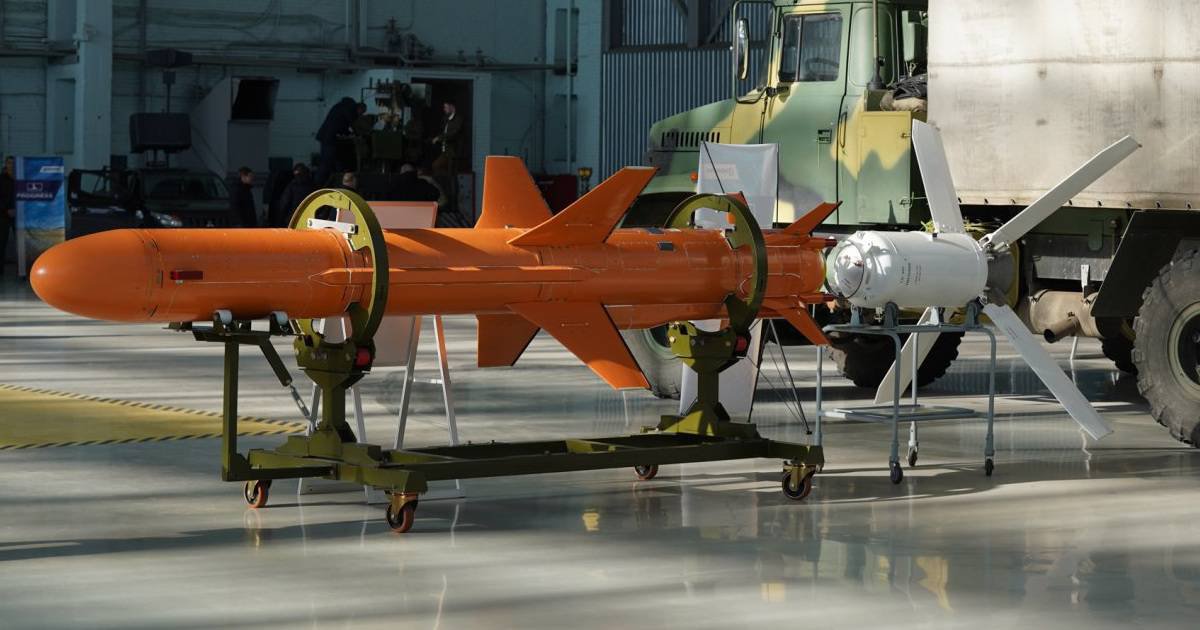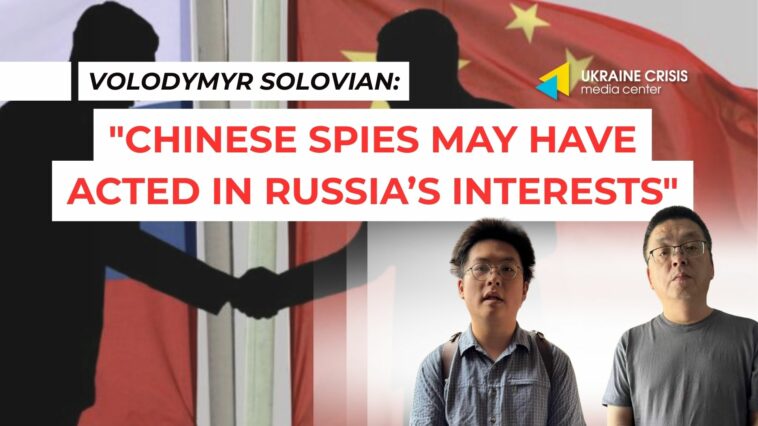A group of Chinese nationals suspected of espionage has been exposed in Kyiv. Reports indicate that their object of interest was Ukraine’s “Neptune” missile. Ukraine believes that the information they collected could be useful to Russia. The Kremlin actively engages students and workers from third countries to gather intelligence.
This was stated on the air of FREEДОМ TV channel by Volodymyr Solovian, Head of the Hybrid Warfare Analysis Group at the Ukrainian Crisis Media Center.
Full Interview:
Who are these spies, and why are we seeing such activity from China in Ukraine for the first time since the start of Russia’s full-scale invasion?
You’re absolutely right – this is the first time such information has entered the public domain since the beginning of Russia’s full-scale invasion. However, I would like to point out that this is not the first case of Chinese industrial espionage in Ukraine. For instance, last year a Chinese citizen who had served a sentence for espionage was expelled from Ukraine. Similar incidents occurred in the 2000s and 2010s, when China was actively developing its military-industrial complex. Ukraine, as is well known, obtained developments in the missile industry since Soviet times, which at the time were of particular interest to Beijing.
Today, China possesses a broad range of missile weaponry; analogues of Ukraine’s “Neptune” missile are already in service with the People’s Liberation Army. I don’t believe the Ukrainian design is a fundamentally new technology for Beijing. For Chinese intelligence, the value of information on the “Neptunes” lies primarily in the context of hypothetical deliveries of such weapons to Taiwan.
However, Ukraine is trying to maintain friendly relations with China, given strong trade ties and dependence on components used in drone manufacturing. In my view, the scenario of supplying Ukrainian weapons to Taiwan is unrealistic. Moreover, Taiwan is actively rearming, purchasing hundreds of American Harpoon missiles, and is unlikely to need Ukrainian missile designs.
Therefore, in my opinion, the ultimate beneficiary of the intelligence Chinese nationals may have attempted to obtain is Russia. It is the Kremlin for whom Ukraine’s missile program poses a current and direct threat.

What, in your opinion, will be China’s reaction?
I believe that official Beijing will comment on the incident with its usual rhetoric – reaffirming neutrality in the Russia–Ukraine war and commitment to peaceful resolution. It’s unlikely that the detention of Chinese citizens will be widely reported in China’s official media. However, on social platforms such as Weibo, information about the arrests of Chinese citizens is already circulating. Still, I think this story won’t go beyond social media, and in the public space, Chinese authorities will likely continue to ignore the issue entirely.
Additionally, there are several major international events coming up that are important for Beijing. These include the upcoming EU–China summit, marking the 50th anniversary of diplomatic relations, and, in early September, large commemorations of the 80th anniversary of China’s victory over Japan in World War II. Therefore, the espionage topic will likely be pushed to the background and is unlikely to dominate China’s information space.

Despite declarations of economic friendship with the EU, Western intelligence services – especially European ones – say there are now more Chinese spies in Europe than Russian ones. Why is that?
This is part of the global confrontation between China and the West. Beijing is trying to maintain its hold on technological sectors of the global economy in which it currently dominates. Europe remains dependent on Chinese supplies of rare earth metals – critical for industry. This dependency limits the EU’s ability to rapidly scale up defense production.
Europe lacks determination and unity in countering external hybrid threats, and China is taking advantage of that. Considering the massive rearmament of NATO countries planned in the coming years, European capitals should treat the issue of Chinese industrial espionage with the seriousness it deserves.
How do you assess the scenario voiced by NATO Secretary General Mark Rutte in an interview with the New York Times – that if Xi Jinping decides to attack Taiwan, he might call Putin and propose distracting NATO by striking one of its member states?
This scenario remains theoretical at this point. The key question is whether China would actually dare to launch a large-scale operation against Taiwan – with all the risks of global escalation and the consequences for the world economy.
So far, we are not seeing active preparations by China for a full blockade or military operation against Taiwan – at least not in the short term. Meanwhile, Russia, exhausted by the war in Ukraine, is unlikely to be able to open a new front against NATO using conventional means anytime soon. For example, events in Iran showed that Russian air defense systems failed to protect Ayatollah regime from Israeli and U.S. strikes, demonstrating low effectiveness in countering modern Western technologies. Therefore, the Kremlin has little chance of maintaining military parity with NATO in non-nuclear capabilities. Any attempts by China to engage Russia into direct confrontation with the Alliance are likely to be limited to sabotage operations and demonstrative military exercises near NATO borders.



